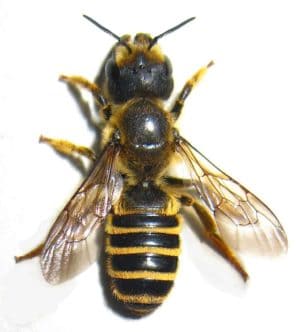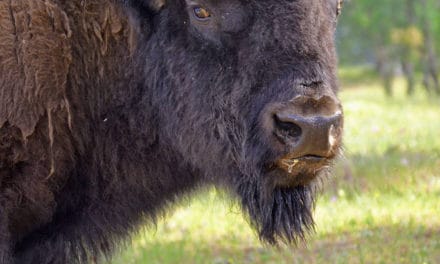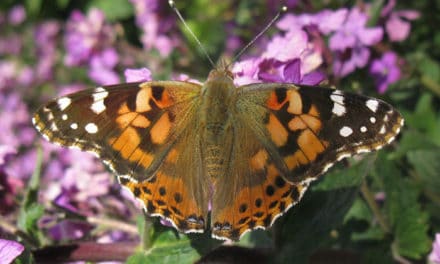By Jim Moore, Entomologist
Living within the Mountain Meadows Basin in Lassen County, where Westwood is located, are more than 70 wild bee species; including Bumble bees, Mason bees, Cuckoo bees, Carpenter bees, Leaf-cutter bees, and others; just a small portion of the over sixteen hundred California wild bee species. Among those bee species is the Pugnacious Leaf-cutter Bee; whose scientific name is Megachile pugnata pomonae.

What first amazed me about this bee was its’ very large mandibles. Most leaf-cutter bee species have larger mandibles than other bees. They use their mandibles to cut small circular shaped sections off the edges of leaves. Perhaps you have seen leaves, almost always lilac leaves in my yard, with rows of small cut out circles along the leaf edges. The bees use these little leaf cutouts to seal up the openings of larval cells where the larva grows and pupates. Leaf-cutter bees usually establish their nests in small holes in wood. The larvae are fed pollen that the bees gather from flowers. Pugnacious Bees are very pugnacious, or aggressive, in guarding their nest holes from other leaf-cutting bees, thus the species name pugnata.
A fun project to do with kids is to make ‘Habitats’ for leaf-cutting bee nests by drilling small holes into wood blocks. Easy instructions can be found online. Then wait and watch for the little bees. They will return the favor as pollinators of many of your garden’s vegetables and flowers.
The Pugnacious Leaf-cutter Bee is also sometimes called the Sunflower Leaf-cutter Bee because of its preference for pollen taken from flowers of the sunflower family; and has been used as a promising pollinator for commercially grown sunflowers. This use of the Pugnacious Leaf-cutter Bee illustrates the important role that all our native wild bees provide in pollinating both wild, domestic, and commercially grown food crops.
It may happen that the Pugnacious Leaf-cutter bee will someday be elevated to a distinct species: Megachile pomonae. If that happens the common name may need to be changed to the Fruit Goddess bee; for ‘Pomona’ was the name of the Roman goddess of fruit!











